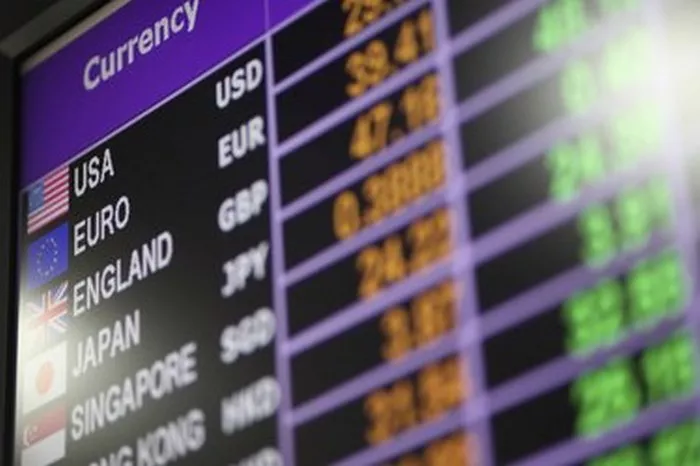Futures trading is a popular investment strategy that allows traders to speculate on the future price movements of various assets. These financial derivatives are contracts to buy or sell a specific asset at a predetermined price and date. They offer traders the opportunity to profit from both rising and falling markets. While the scope of futures trading is vast, let’s explore some of the most commonly traded futures contracts.
1. Stock Index Futures
Stock index futures allow traders to speculate on the future direction of a stock market index. These futures contracts are based on the performance of an underlying stock index, such as the S&P 500, Dow Jones Industrial Average, or NASDAQ-100. Traders can take long (buy) or short (sell) positions on these contracts, depending on their market outlook. Stock index futures are particularly popular among institutional investors and day traders looking to capitalize on short-term market movements.
2. Commodity Futures
Commodity futures involve the trading of contracts based on the future price of physical commodities like gold, oil, natural gas, corn, wheat, or coffee. These contracts enable traders to speculate on the price fluctuations of these commodities without the need for physical ownership. Commodity futures are influenced by factors such as supply and demand dynamics, geopolitical events, weather conditions, and global economic trends. They are traded on exchanges like the Chicago Mercantile Exchange (CME) and provide opportunities for hedging, speculation, and portfolio diversification.
3. Currency Futures
Currency futures are contracts that allow traders to speculate on the future value of a specific currency against another. For example, a trader can enter into a futures contract to buy British pounds and sell U.S. dollars or vice versa. Currency futures provide a means for market participants to hedge against currency risks and profit from fluctuations in exchange rates. They are traded on exchanges such as the Chicago Mercantile Exchange (CME) and offer exposure to various currency pairs, including major currencies like the U.S. dollar, euro, Japanese yen, British pound, and Swiss franc.
4. Interest Rate Futures
Interest rate futures are contracts based on the future value of interest rates. These futures allow traders to speculate on the future direction of interest rates, which can have a significant impact on various financial instruments and markets. For example, the Chicago Board of Trade (CBOT) offers futures contracts based on U.S. Treasury bonds and Eurodollar deposits. Interest rate futures provide opportunities for traders to hedge against interest rate risks and take positions based on their expectations of monetary policy decisions and economic indicators.
5. Energy Futures
Energy futures involve the trading of contracts based on the price of energy commodities such as crude oil, natural gas, and gasoline. These futures contracts track the market price of energy products and are influenced by factors such as global supply and demand, geopolitical tensions, and weather conditions. Energy futures provide opportunities for traders to speculate on the future direction of energy prices, hedge against energy-related risks, and gain exposure to the energy sector without physical ownership.
6. Agricultural Futures
Agricultural futures are contracts that allow traders to speculate on the future price movements of agricultural products. These products include crops like corn, wheat, soybeans, rice, and livestock such as cattle and hogs. Agricultural futures are influenced by factors such as weather conditions, crop yields, global demand, and government policies. These contracts provide opportunities for traders to hedge against price fluctuations in the agricultural sector and profit from anticipated changes in supply and demand dynamics.
7. Metal Futures
Metal futures involve the trading of contracts based on the price of metals like gold, silver, copper, platinum, and palladium. These futures contracts track the market value of these metals and are influenced by factors such as industrial demand, geopolitical events, and inflation expectations. Metal futures provide opportunities for traders to speculate on the future direction of metal prices, hedge against price risks, and gain exposure to the metals market.
8. Cryptocurrency Futures
With the rise of cryptocurrencies like Bitcoin and Ethereum, cryptocurrency futures have gained popularity among traders. These futures contracts allow traders to speculate on the future price movements of cryptocurrencies without owning the underlying assets. Cryptocurrency futures are influenced by factors such as market sentiment, regulatory developments, technological advancements, and macroeconomic trends. They offer opportunities for traders to profit from the volatility of cryptocurrencies and manage their exposure to this emerging asset class.
In conclusion, futures trading provides a wide range of options for traders to participate in various financial markets. From stock indices and commodities to currencies and cryptocurrencies, futures contracts enable market participants to profit from price fluctuations, hedge against risks, and diversify their portfolios. However, it is essential to note that futures trading involves inherent risks, and traders should carefully consider their investment goals, risk tolerance, and market knowledge before engaging in futures trading.


